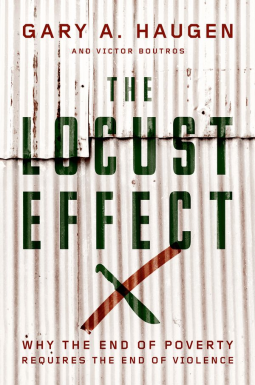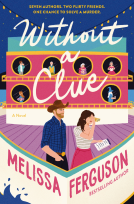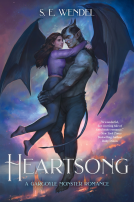Please wait... This may take a moment.
The Locust Effect
Why the End of Poverty Requires the End of Violence
by Gary Haugen A., Victor Boutros
This title was previously available on NetGalley and is now archived.
Pub Date
Feb 04 2014
| Archive Date
May 06 2014
Description
When we think of global poverty we usually think of hunger, disease, homelessness. Few of us think of violence. But beneath the surface of the poorest communities in the developing world is a hidden epidemic of everyday violence -- of rape, forced labor, illegal detention, land theft, police abuse, and more -- that is undermining our best efforts to assist the poor.
Gary Haugen and Victor Boutros's The Locust Effect offers a searing account of the way pervasive violence blocks the road out of poverty, undermines economic development, and reduces the effectiveness of international public health efforts. As corrupt and dysfunctional justice systems allow the locusts of predatory violence to descend upon the poor, the ravaging plague lays waste to programs of income generation, disease prevention, education for girls and other assistance to the poor. And tragically, none of these aid programs can stop the violence.
In graphic real-world stories -- set in locales ranging from Peru to India to Nigeria -- The Locust Effect offers a gripping journey into the vast, hidden underworld of everyday violence where justice is only available to those with money. But the book holds out hope, recalling that justice systems in developed countries were once just as corrupt and brutal; and explores a practical path for throwing off antiquated colonial justice systems and re-engineering the administration of justice to protect the poorest.
Sweeping in scope and filled with unforgettable stories, The Locust Effect will force us to rethink everything we know about the causes of poverty and what it will take make the poor safe enough to prosper.
When we think of global poverty we usually think of hunger, disease, homelessness. Few of us think of violence. But beneath the surface of the poorest communities in the developing world is a hidden...
Description
When we think of global poverty we usually think of hunger, disease, homelessness. Few of us think of violence. But beneath the surface of the poorest communities in the developing world is a hidden epidemic of everyday violence -- of rape, forced labor, illegal detention, land theft, police abuse, and more -- that is undermining our best efforts to assist the poor.
Gary Haugen and Victor Boutros's The Locust Effect offers a searing account of the way pervasive violence blocks the road out of poverty, undermines economic development, and reduces the effectiveness of international public health efforts. As corrupt and dysfunctional justice systems allow the locusts of predatory violence to descend upon the poor, the ravaging plague lays waste to programs of income generation, disease prevention, education for girls and other assistance to the poor. And tragically, none of these aid programs can stop the violence.
In graphic real-world stories -- set in locales ranging from Peru to India to Nigeria -- The Locust Effect offers a gripping journey into the vast, hidden underworld of everyday violence where justice is only available to those with money. But the book holds out hope, recalling that justice systems in developed countries were once just as corrupt and brutal; and explores a practical path for throwing off antiquated colonial justice systems and re-engineering the administration of justice to protect the poorest.
Sweeping in scope and filled with unforgettable stories, The Locust Effect will force us to rethink everything we know about the causes of poverty and what it will take make the poor safe enough to prosper.
Available Editions
| EDITION |
Other Format |
| ISBN |
9780199937875 |
| PRICE |
$27.95 (USD)
|
Additional Information
Available Editions
| EDITION |
Other Format |
| ISBN |
9780199937875 |
| PRICE |
$27.95 (USD)
|
Average rating from 3 members
Readers who liked this book also liked:
Without a Clue
Melissa Ferguson
General Fiction (Adult), Mystery & Thrillers, Romance
Heartsong
S.E. Wendel
General Fiction (Adult), Romance, Sci Fi & Fantasy












